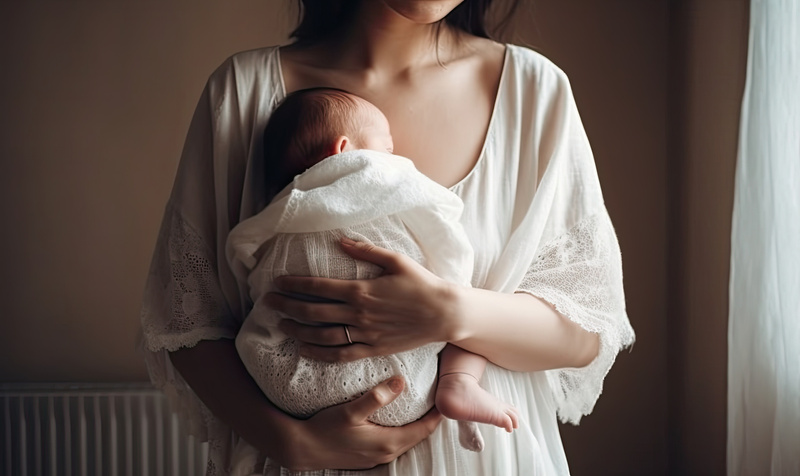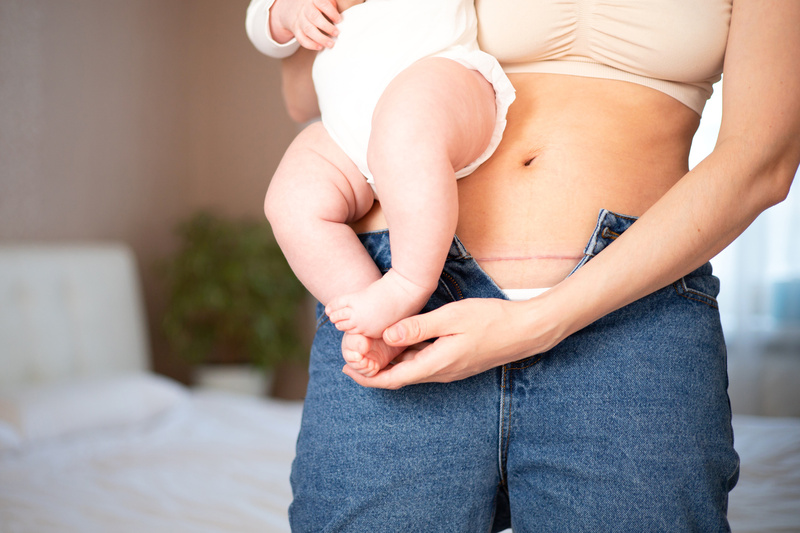Perception Of The Body Image
In Women After Childbirth

Among the numerous transformations a woman's body undergoes in her lifetime, childbirth is one of the most significant. This article delves into the profound effects of childbirth on women's body image, a topic that is often overlooked yet holds immense importance.
The issue of body image post-childbirth is crucial as it directly impacts a woman's self-esteem, mental health, and overall well-being. Understanding this perception can help support new mothers in their journey toward self-acceptance and body positivity.
The Impact Of Childbirth On Women's Bodies
Pregnancy and childbirth bring about substantial physical changes in a woman's body. These changes, such as weight gain, stretch marks, and changes in breast shape, can sometimes lead to dissatisfaction with body image. Some women may even consider medical procedures, like a tummy tuck procedure, to restore their pre-pregnancy body shape.
Alongside physical changes, emotional shifts also occur post-childbirth. Hormonal fluctuations can affect mood and self-perception, further influencing a woman's body image. Acknowledging these changes is essential to support women in navigating their postpartum journey.
Perception Of Body Image After Childbirth
After childbirth, many new mothers grapple with a changed body and altered self-image. Common feelings include surprise at the extent of physical changes, frustration with slow recovery, and pressure to return to their pre-pregnancy body. Some women may feel a disconnect with their postpartum bodies, while others may embrace the changes as symbols of their motherhood journey.
Societal expectations and pressure can exacerbate these feelings. The pervasive notion of 'bouncing back' after childbirth can create unrealistic expectations, leading to feelings of inadequacy and negative body image among new mothers.
The Influence Of Culture And Society
Body image perceptions vary across different cultures. In some societies, postpartum body changes are celebrated as signs of motherhood, while others may place a high value on returning to pre-pregnancy physique quickly. Understanding these cultural nuances is crucial in addressing body image issues.
Societal norms and expectations play a significant role in shaping body image. The societal ideal of beauty often leans toward slim and youthful bodies, which can be challenging for new mothers to reconcile with their postpartum bodies.
Media and celebrity culture further amplify these pressures. The portrayal of celebrities regaining their pre-pregnancy bodies swiftly can create unrealistic standards for new mothers, impacting their body image.

Coping Mechanisms And Strategies
For each woman, embracing self-love and acceptance is vital in navigating body image issues post-childbirth. Recognizing the body's strength and resilience during childbirth can foster a positive body image.
Support systems play a crucial role in this journey. Encouragement from family, friends, and support groups can help new mothers navigate their feelings and promote a healthy body image.
Professional help, such as counseling or therapy, can also be beneficial for those struggling with body image issues. A personalized mental health care plan can provide the necessary tools and strategies to promote self-acceptance and positive body image post-childbirth.
The Role Of Medical Professionals
Medical professionals, including doctors and nurses, play a pivotal role in supporting a positive body image among new mothers. They can provide accurate information about the physical changes associated with childbirth, helping to set realistic expectations. By fostering an environment of open communication, they can encourage women to express their concerns and feelings about their postpartum bodies, validating their experiences and providing reassurance.
Postpartum check-ups are not just about physical health but are also an opportunity to discuss body image. Medical professionals can use these visits to initiate conversations about body image, offering advice and resources to help women navigate any challenges they may be facing. These discussions can help normalize the range of postpartum body experiences and reinforce the idea that there is no 'right' way to look after giving birth.
In some cases, women may consider cosmetic procedures to address specific concerns about their postpartum bodies. Medical professionals can provide guidance on these procedures, discussing the potential benefits and risks. It's important to note that the decision to undergo a cosmetic procedure should be based on personal choice and not societal pressure.
Final Words
The perception of body image in women after childbirth is influenced by a myriad of factors, including physical and emotional changes, societal expectations, and media portrayals. Support systems, self-love, acceptance, and professional help can aid in fostering a positive body image.
Shifting societal perceptions is crucial to promoting a healthier body image among new mothers. This involves challenging unrealistic beauty standards, promoting diverse representations of postpartum bodies, and fostering a culture of acceptance and support.
Further research and conversation on this topic are encouraged. By continuing to explore and discuss body image perceptions in women after childbirth, society can evolve to become more inclusive and understanding, thereby better supporting new mothers in their postpartum journey.